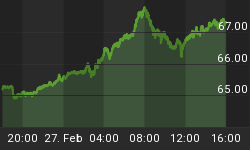Alibaba’s new robot-manned “FlyZoo” hotel is testing the boundaries of how comfortable guests are with robot staff who don’t get moody and don’t get paid, allowing the company to save significantly on human labor costs.
It puts a new spin on room service, according to Reuters, which visited the hotel, describing robots a meter high delivering food and dropping off fresh towels to guests.
For guests who want their privacy and don’t feel like engaging in small talk with hotel staff, it’s probably a big win.
For Alibaba, it’s a huge opportunity to show off its high-tech pioneer status to the public.
“FlyZoo” boasts 290 rooms starting at $201 per night, and it opened its doors in December, confident that robots are the future of the hotel business.
“It’s all about the efficiency of the service and the consistency of service because the robots are not disturbed by human moods. Sometimes, we say we are not in the mood, but the system and the robot will always be in the mood,” Alibaba Future Hotel Management CEO Andy Wang told Reuters.
But while some might like the break from human interaction and small talk, others might balk at the idea of a robot scanning their personal identification at check-in, and then wondering where all that data goes.
It’s not an entirely new concept—but it is rare, for now. In 2015, Japan opened first ever hotel run by robots.
Since then, Japanese travel company H.I.S. has been opening hotels where robots man the front desk, check-in is handled by a kiosk, and face recognition opens the door to your room. So it’s not fresh towels and room service, but it is quite a lot of AI.
While everyone’s suffered from human-related communication problems at hotels, though, AI isn’t necessarily fixing that—yet. AI room ‘assistants’ are like Alexa, who doesn’t always understand what you’re saying, and there’s still plenty of room for misunderstandings, even if it is without an attitude.
At one of H.I.S. hotels, the Wall Street Journal cited one guest as saying that he realized at 6 a.m. that the assistant was responding to his snoring. Earlier this month, H.I.S decided to “fire” over half of its 243-strong robot workforce and replace them with humans. Related: The Global Energy Transition Has Hit A Roadblock
Alibaba is clearly hoping its tech improves on the Japanese experience.
Plenty of tweaks will be needed along the way, but it will get there eventually.
And robot hotels by Alibaba underscore another crucial aspect of this tech: The AI race between the U.S. and China.
At the ongoing Davos World Economic Forum annual meeting on global politics, economics, and social issues, American business leaders sounded alarm bells over what they claim is a situation in which China is making dangerously big gains in the artificial intelligence revolution.
While the U.S. may still be the leader in the AI race, China is determined to overtake by attacking from multiple directions.
Recently, the Chinese State Council set a goal of matching the U.S. in AI by 2020, eyeing a $150-billion industry. By 2030, it plans to become the world’s key AI “innovation center”.
Chinese research submissions to AI conferences have already ramped up significantly, while investment in Chinese AI work and patent filings are also on the rise.
According to the U.S. Office of Science and Technology Policy (OSTP) report, the federal government spent about $1 billion on AI in 2015, while the White House says that spending jumped to $3 billion in 2017.
By way of comparison, one Chinese state has promised to invest $5 billion in AI, while the federal government in Beijing has committed $2 billion to an AI development park.
China has 50,000 people working in technology-related roles within AI, while the US has 850,000, but Beijing is gunning for an additional 5 million AI workers to meet the industry’s needs and the country’s goals of AI dominance.
By Michael Scott for Safehaven.com
More Top Reads From Safehaven.com
















